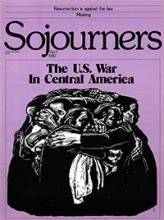Following are excerpts from an interview with Bob Chenoweth, crew chief of a Huey helicopter in Vietnam until he was shot down in 1967. When this article appeared, he worked with the Institute for Policy Studies in Washington, D.C., and was considered an expert on the tactical uses of helicopters. The interview first appeared in the July, 1981 Washington Peace Center Newsletter.
Why did the U.S. decide to send the Huey to El Salvador?
Chenoweth: By U.S. military standards the Huey was a very successful counter-insurgency weapon in Indochina. Thus, in the Pentagon's mind it was a natural first step in transferring weapons that would enable the junta to terrorize the opposition in the countryside.
Militarily, it gives the junta a technological and tactical edge in attacking the opposition. But what it doesn't do is alter the political reality in which the people's opposition is grounded.
Will the Huey allow the junta to prevail in El Salvador?
Chenoweth: I believe it will have the same effect in El Salvador as it did in Vietnam: that is, it will prolong the war and extend the killing.
In counter-insurgency warfare, you have no real gauge for success--you're not out there destroying armies. So you end up in the body-count business.
I suspect the propaganda machine will operate as it did in Vietnam. They will get into the numbers game, counting all the people they kill as guerrillas, even though many--sometimes most--of them will be defenseless civilians. As the numbers get higher and higher, the junta will claim they are crushing the opposition. They will in turn use this to lobby for continued U.S. support.
Of course the problem is the way these numbers are worked. In Vietnam you would have thought we won the war by 1968, given the number of people we killed.
Read the Full Article

